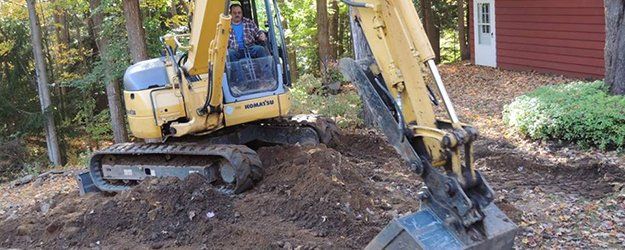Comprehensive Excavation Strategies: Mastering the Principles for Success
The cautious preparation, specific execution, and meticulous interest to detail needed in excavation projects demand a detailed strategy that encompasses various fundamental aspects. The true mastery lies not simply in comprehending these basics however in seamlessly integrating them to navigate the intricacies of excavation tasks with finesse.
Recognizing Excavation Project Planning

The initial stage of any excavation job is the planning phase, where essential decisions are made that can substantially influence the outcome of the project. Comprehending the job timeline, extent, and budget plan constraints is vital for developing a comprehensive excavation plan that ensures the project's success.
One trick aspect of excavation job preparation is the growth of a comprehensive timeline that details the series of target dates, tasks, and landmarks. By thoroughly considering all these elements throughout the planning stage, excavation tasks can be carried out successfully and efficiently, leading to effective outcomes - dump truck companies in ohio.
Soil Analysis and Website Analysis
Conducting detailed soil evaluation and website evaluation is a critical step in the prep work phase of any type of excavation task. Soil evaluation involves figuring out the make-up, framework, and homes of the dirt at the excavation site. This details is essential for recognizing the soil's bearing capability, moisture web content, and capacity for erosion, which are vital variables in identifying the excavation techniques and devices required for the task.
Website evaluation surpasses soil analysis and encompasses a broader assessment of the overall site conditions. This assessment includes determining any type of prospective threats, such as underground energies, ecological issues, or unsteady surface, that might affect the excavation process. By completely examining the site, job supervisors can create reliable excavation strategies that prioritize safety, performance, and ecological security.
Using sophisticated innovations like ground-penetrating radar, soil tasting, and drone studies can improve the accuracy and performance of dirt analysis and website examination. Spending time and sources in these preliminary actions can eventually save time and prevent pricey delays or complications throughout the excavation process.
Equipment Option and Use
Efficient excavation tasks depend heavily on critical devices selection and use to guarantee optimal efficiency and efficiency. Selecting the appropriate devices for the job is essential in maximizing performance and lessening downtime. Factors such as the kind of dirt, depth of excavation, and job range play a considerable function in determining the most suitable devices for the task handy.

Along with picking the appropriate equipment, proper utilization is key to project success. Operators must be trained to handle the equipment safely and efficiently - septic ohio. Normal find out here upkeep checks and timely repair services aid stop malfunctions and make sure constant performance throughout the project
Safety Measures and Rules Conformity
In the realm of excavation projects, prioritizing precaution and conformity with laws weblink is critical to making sure a safe and lawfully sound operational environment. Precaution include a variety of practices, consisting of carrying out extensive site analyses, applying appropriate signs and obstacles, and supplying appropriate security training for all personnel associated with the excavation process. Adherence to regulations, such as OSHA needs in the USA, guarantees that the excavation project fulfills the needed requirements to secure workers, bystanders, and the surrounding atmosphere.

Monitoring Progression and Adjusting Strategies
Exactly how can predict supervisors efficiently track the development of excavation tasks and adapt their methods appropriately to maximize end results? Surveillance progression is important for ensuring that excavation tasks stay on track and fulfill deadlines.

Final Thought
To conclude, mastering the principles of detailed excavation techniques is important for the success of any task. By comprehending job planning, analyzing soil and website conditions, picking appropriate tools, abiding by security policies, and keeping an eye on progression, project supervisors can ensure a effective and smooth excavation process. Executing these methods will certainly bring about effective outcomes and lessen potential dangers or setbacks during the excavation task.
The initial phase of any kind click to read more of excavation project is the planning phase, where crucial choices are made that can significantly affect the end result of the project. Comprehending the task timeline, budget plan, and extent restraints is essential for producing a thorough excavation plan that guarantees the job's success.
How can project managers successfully track the advancement of excavation projects and adapt their approaches as necessary to enhance end results? By very closely keeping an eye on progression and being willing to adapt strategies, task supervisors can boost the overall success of excavation jobs.
By comprehending project preparation, examining soil and site conditions, selecting suitable tools, complying with safety and security regulations, and keeping track of development, task managers can make sure a reliable and smooth excavation procedure.